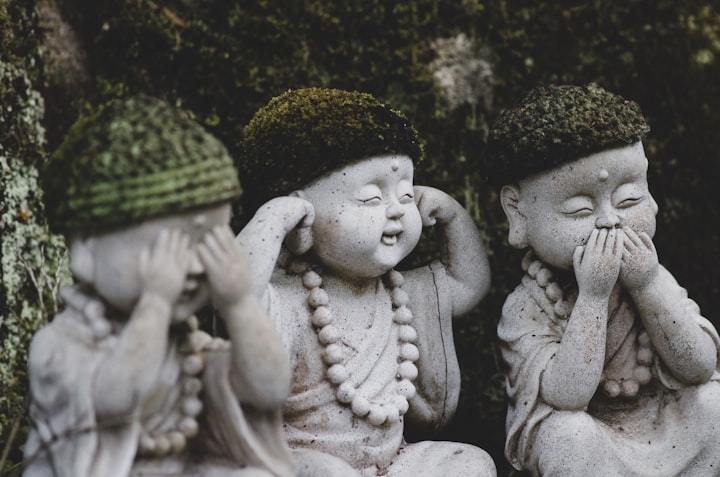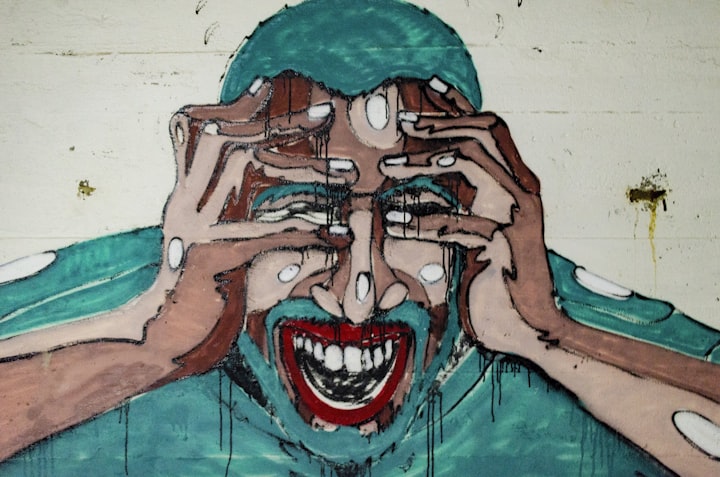I Was Obsessed with Editing Myself for Social Media
How I unlearned an obsession with perfection

How to Look Good in Photos (According to an Eleven Year Old):
☑ Smile with your mouth closed.
☑ Stick your head out to avoid a double chin.
☑ Raise your eyebrows.
☑ Delete the photo if your nose looks too big.*
☑ * Or if your cheeks look too round.
☑ Or if your smile looks crooked.
☑ Or if it shows how big your body is.
In an age of social media, I think we can recognize the collective obsession with showcasing an “ideal" you. It’s become a long-discussed topic: that social media has made people enthralled with presenting themselves to the world, in a way that will earn a positive response. But if you’ve spent more than a day on the internet, you can see the types of people given this response; the types of posts, aesthetics, and appearances garnering positive attention. On the flip-side, you've probably also seen how cruel the internet can be to those whose posts do not match these favored qualities.
I downloaded Facebook at eleven years old in 2009, and it was then that I learned the apparent importance of sculpted eyebrows, prominent cheekbones, and a flat stomach. None of which I had. Suddenly, the shy, yet uninhibited girl who posed for photos with sass and flare, was consciously running a checklist through her mind each time someone pointed their camera at her. No double chins, tooth-gap smiles, or pudgy arms, allowed.

The Age of Selfies
Having learned what was "desirable" and "undesirable", eventually I only allowed my face to be photographed above the arm of a selfie.
From grade school onward, I inspected photos of myself like a classroom frog dissection, scrutinously picking my looks apart, until I was left with something I wanted to throw away. I deleted anything that didn’t fit my standards, even if my smile in the photo was bright and genuine, and even if the photo captured an amazing memory. My heart would drop at Facebook notifications of tagged pictures, and I would quickly remove my name from anything that showed my full body or was “unflattering”. I sculpted my online presence with precision, and obsession.
The obsession spilled over into an even more dangerous territory: photo editing. I edited acne bumps with blurring tools to smooth my skin, lightened my face with filters to look glowy and bright, and cropped my forehead out of pictures if it looked too large. At its worst, I used a photo resizing tool, stretching my pictures to give the appearance of a thinner face. Looking back, these photos probably looked ridiculous, given that people knew what I looked like in real life. But at the time, all that mattered was I thought I looked thin. People on the internet were kind to you, if you looked thin.

And then, the tiny spill overflowed into my real life. I remember a high school art assignment, where I had to sketch a recent, full-body portrait of myself. It was then I realized, I didn’t have any photos to use as reference because I didn’t allow anyone to take photos of me below the shoulders. My mom snapped and developed some full-body pictures of me that week, and I remember the anger and agony I felt when I saw myself. I dissected the photos as I always did, obsessively reducing myself to body parts.
I was lumpy and awkward. My hair frizzed wildly, and my eyebrows were low; my nose was bulbous and wide, and my smile was lopsided. I was seeing myself below the above-the-shoulders selfie, and there were no special angles, edits, or filters to hide the parts of me that I hated. I was seeing what I believed others saw, and I was horrified.
That same day, I snipped the photos into tiny, glossy pieces, poured into the garbage like a waterfall of photograph confetti. Mortified, I almost didn’t do the assignment; as if my teacher would shocked by the photographs, despite having taught me for an entire semester. Instead, I found a grainy, filtered, full-body photo of myself that I’d managed to thin with a photo-stretching tool, printing it from my family's computer. Drawing myself was an even harder battle of perception, and I realized I had no idea what I actually looked like.
The Good, The Bad, and The Ugly
Entering into university in 2017, the struggle with my appearance persisted. But as I met new friends, and explored the newfound freedom of living in a new city, I found myself obsessing over someone new: capturing memories. I was experiencing so many new things for the first time, and I wanted to be able to look back at these moments when I was older.
Slowly, but surely, my confidence grew. I still carefully analyzed my photos before posting them online, but I was letting my friends photograph me; I was smiling ear to ear in candid videos, making obnoxious silly faces, and posing for pictures without going through the points in my mental checklist. I saved photos where I looked "bad"; photos where you could see my double chin, my eye bags, and the gaps in my teeth. Photos where I felt I looked "ugly", when really, I just wasn’t used to seeing myself from someone else’s perspective, free from the control of my selfie angles and filters.
I was seeing photos for what they could be: memories. Snapshots, freezing moments in time.

Regardless of what these photos look like‒whether I look beautiful, or awkward‒I’m beyond grateful to have them. They're a tiny yet momentous part of my life; an exhibit of so many beautiful moments and events I could have otherwise forgotten. And it’s funny, because I look at these photos now, and I remember thinking I looked hideous in some of them at the time. But now, all I see is a young woman living and enjoying these little snippets of her life. She doesn’t look Instagram-ready. She’s not posed to appear candid. She is candid. She is living.
There was never an “aha!” moment where something clicked, and suddenly I felt beautiful in photos, or even real life. There are still endless days where I don’t like how I look in pictures; I still fight the urge to delete these photos, and sometimes I give in, sending selfies to their photo graveyard. I have to constantly remind myself, that someday, I’m going to want these pictures. Not to marvel at beauty, or youth, but to simply remember.
If I’ve learned anything from watching the people I love grow older‒aging away from their memories of childhood, and young adulthood‒I want to remember as much as I can. I want to remember the people in my life; the things I’ve done. I want to remember the reasons I smiled and laughed in these photos. I don't want to tell someone to not take pictures of me, just because I don't have makeup on that day. I don’t want to obsess over having the perfect instagram aesthetic, or making sure my stomach rolls don’t ruin the shot. I want to smile for a picture like I did as a child, when my biggest worry was to keep my eyes open, and yell “cheese”.

I don’t think social media is inherently evil, or will automatically lower a person's self esteem, but I do believe it has a hold on us and the way we create memories. I personally don’t post photos of myself to Instagram or Facebook anymore, purely because I grew tired of the obsessiveness I felt any time I shared a photo of myself. I found myself taking pictures, not for the memories, but for the “likes”.
I think social media can be a beautiful way to document and share your life, and it has connected so many people. But I also think we've forgotten to take photos for ourselves. For my own personal growth, I’ve given up taking photos that I believe others will like. These days, I smile wide in photos, (tooth-gaps and all), for my future self. So she can remember, and so she can smile.
About the Creator
Mina Wiebe
Figuring things out; finding my voice. Thanks for visiting.






Comments
There are no comments for this story
Be the first to respond and start the conversation.